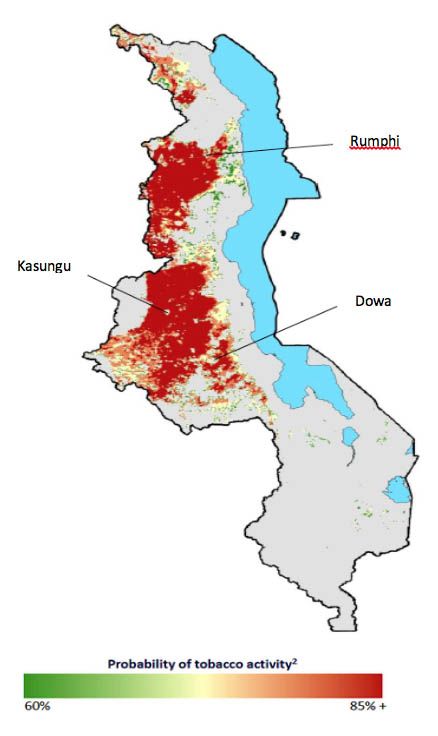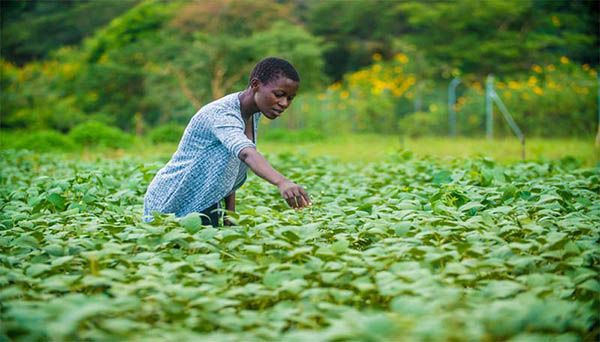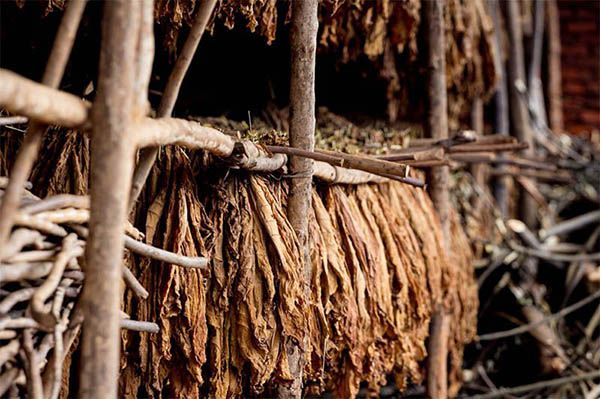By the late 1980s, the World Health Organization (WHO) had started to ramp up efforts to address global tobacco control. World No Tobacco Day was created by the Member States of the WHO in 1987, whereby the World Health Assembly (WHA) passed Resolution WHA40.38 that called for April 7, 1988, to be a “a world no-smoking day.” That was the first of what has since become an annual celebration of World No Tobacco Day each May 31, after Resolution WHA42.19 was passed in 1989. When these “Tobacco or Health” resolutions were passed to raise awareness of the harmful effects of tobacco on health, tobacco was responsible for more than 2 million premature deaths annually. Since then, that number has risen to more than 7 million annual deaths.

Unbeknownst at the time, tobacco companies started collaborating with Heatherwick Ntaba, the Chief of Health Services, Ministry of Health, in Malawi. Ntaba was a delegate to the WHA, as well as a member of the WHO Executive Board in 1988 and 1989. Philip Morris documents that came to light after the Minnesota Court Case (1998)report a discussion with Ntaba about how “WHO policy would switch the ‘health risk’ associated with the use of tobacco to the more immediate and dramatic one: ‘the economy risk,’ which would result in the collapse of the economy of a country such as Malawi.”
Ntaba stated in his address to the 41st WHA in 1988, “WHO must have the moral courage and vision completely to overhaul its anti-tobacco campaign.” In 1992, 4 years later, tobacco companies applauded the adoption of a resolution (WHA45.20) at the 45th WHA meeting that called for consideration of the economic impact of tobacco control measures, in addition to considering the benefits of such measures on health. Resolution WHA45.20 was dubbed the “Malawi Resolution” by tobacco companies. In 1992, 73.0%of agricultural income in Malawi was attributed to tobacco, and approximately a third of the country’s paid employment was derived from the tobacco industry.
The Malawi Resolution called for an assessment of “the impact of tobacco production on the economy of tobacco producing countries, in particular those that depend upon tobacco as a major source of income.” Resolution WHA45.20 stipulated that the central United Nations (UN) oversight of all tobacco issues would be conducted by the UN Conference on Trade and Development (UNCTAD), which reports to the UN Economic and Social Council (ECOSOC). The resolution called on ECOSOC to coordinate collaboration among several UN agencies, including the WHO, to address tobacco issues. WHO stated that “Evidence from tobacco industry documents reveals that tobacco companies have operated for many years with the deliberate purpose of subverting the efforts of the … WHO to control tobacco use.” Tobacco companies at the time considered that the consequence of the Malawi Resolution would be a barricade to the calls for tobacco control.
The intent behind commissioning the 2000 report – Tobacco Company Strategies to Undermine Tobacco Control Activities at the WHO – was to place the tobacco industry, as well as complicit governments and academics, on notice that their actions were unacceptable. Tobacco companies had hoped (correctly) that UNCTAD would not stimulate urgent action for tobacco control.
One of my first tasks as we started negotiations on the first global public health treaty, the WHO Framework Convention on Tobacco Control (FCTC), was to wrest control of tobacco oversight from UNCTAD and place it within the WHO. Negotiations of the FCTC under the auspices of the WHO were not to be subverted for undue influence from tobacco companies or any complicit entity. Successful negotiations resulted in the development of the WHO FCTC Treaty. The convention entered into force on February 27, 2005, and was approved back then by 40 Member States.
Fast forward to today. At present, there are 181 Parties to the Convention.
The arguments made 30 years ago that demand for tobacco leaf would drop rapidly in response to actions undertaken by the WHO and by governments were not valid then. In 1999, the World Bank’s report on the economics of tobacco control, Curbing the Epidemic, stressed the futility of addressing supply-side issues (like tobacco diversification) while global demand for tobacco remained so high and seemed likely to stay high for decades despite WHO efforts. No major funding initiatives have been developed to address the needs of tobacco farmers in developing countries, although several well-financed programs have helped Canadian and American tobacco farmers transition from tobacco to alternative livelihoods.
The FCTC includes provision in its guiding principles to address the needs of farmers:

“The importance of technical and financial assistance to aid the economic transition of tobacco growers and workers whose livelihoods are seriously affected as a consequence of tobacco control programmes in developing country Parties, as well as Parties with economies in transition, should be recognized and addressed in the context of nationally developed strategies for sustainable development.”
This recommendation echoes the sentiment of the 1992 Malawi Resolution but has yet to be funded. Over the last three decades, and especially over the last decade, the needs of smallholder farmers (often women) have increased for several reasons.

Countries like Malawi, which have become dependent on tobacco exports, have seen this dependence lead to worse economic growth, slow development, increased labor needs, and poor health. When WHA45.20 was passed, tobacco represented more than 70% of the export earnings in Malawi, and the country was considered by tobacco companies as one of the two Eldorados of African tobacco, the second being Zimbabwe, with more than 25% of its export earning in tobacco. Today, 27 years later, tobacco accounts for 55%of total exports in Malawi.
However, the demand for tobacco leaf is finally decreasing consequent to (1) tobacco control regulations led by the WHO being put in place around the world, (2) Bloomberg’s financial support for the implementation of WHO-led regulations, and (3) transformation of tobacco and e-cigarette companies as they are shifting to tobacco harm reduction products that require less tobacco. The shift to tobacco harm reduction products is most obvious in Japan, Korea, the United States, the United Kingdom, many Member countries of the Organisation for Economic Cooperation and Development (OECD), Russia, and even some developing countries. Such changes will inevitably have consequences in countries with tobacco-reliant economies, such as Malawi.
As we established the Foundation for a Smoke-Free World (the Foundation), it became clear that the needs of smallholder tobacco farmers, especially in Africa, are of paramount importance to national development, because tobacco demand continues to decline and progress achieved by countries across the globe to implement FCTC measures renders the end of smoking a realistic goal.
To better prepare farmers for a future that continues to see a decline in tobacco demand, and to help strengthen their countries’ economies, we, at the Foundation, integrated agricultural transformation as a significant core pillar of our work. The Agricultural Transformation Initiative (ATI) recognizes that Malawi is a country with uniquely challenging needs as it is the most tobacco-dependent country in the world. Malawi is hence an obvious place to start our work in the agricultural sector.
Crop diversification was a topic that was raised decades ago at a conference on tobacco control that was held in Harare, Zimbabwe in 1994. Henry Ntaba, President of the International Tobacco Growers’ Association in Africa, qualified himself then as “a farmer first, and a tobacco farmer second.” Might this line be inspiring to tobacco farmers across the globe? We certainly anticipate that it will be, and we will ensure that our efforts will help farmers and their economies thrive. Our ATI office is now operational, and work in this direction is underway!
This blog draws heavily on the 2000 Report of the Committee of Experts on Tobacco Industry Documents. Derek Yach led the WHO’s Tobacco Free Initiative at the time and with his team, including Chitra Subramanian and Douglas Bettcher, facilitated the widespread dissemination of the report as the FCTC process began.
© 2023 Foundation for a Smoke-Free World. All rights reserved.